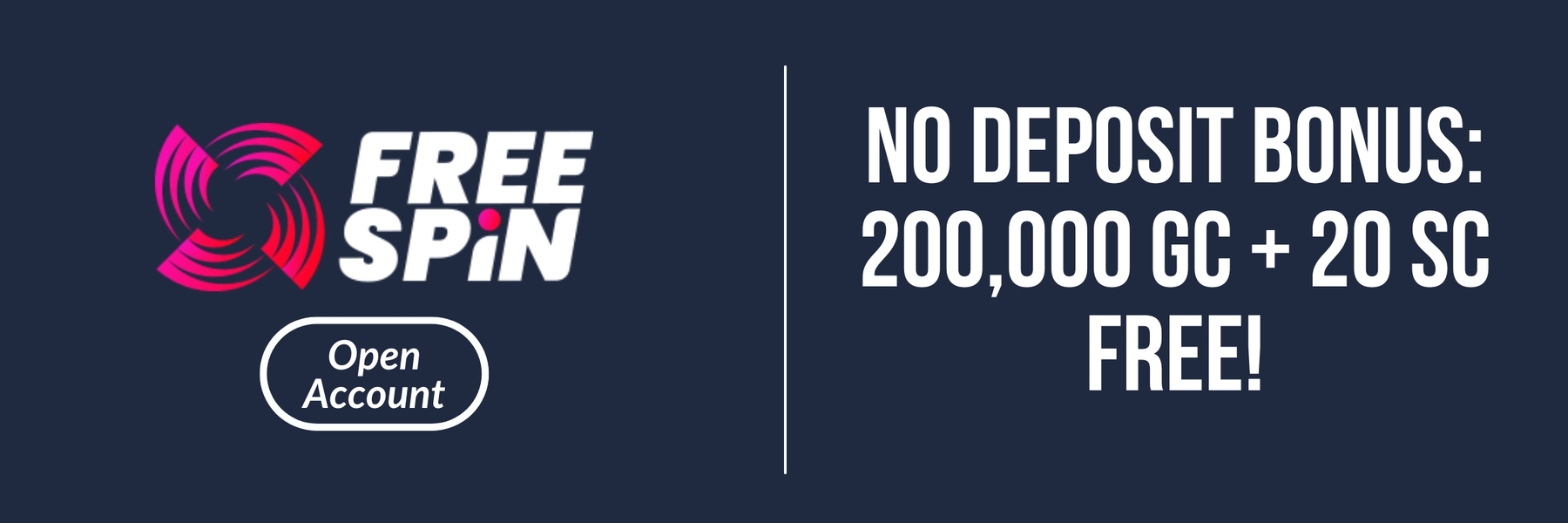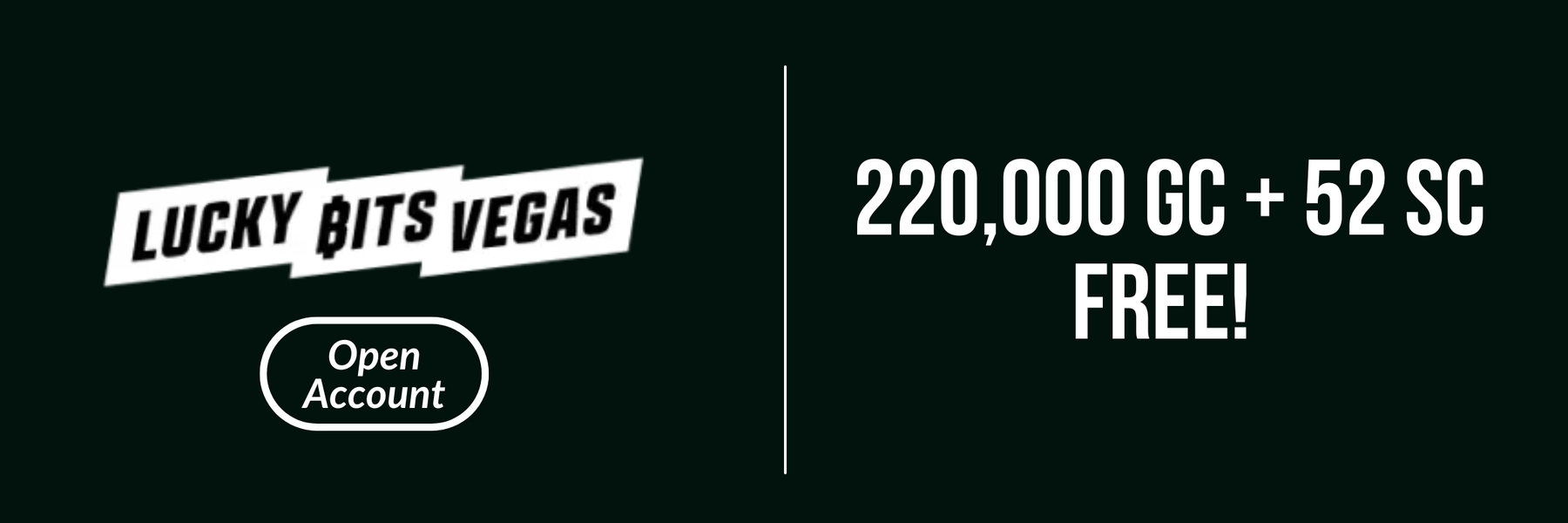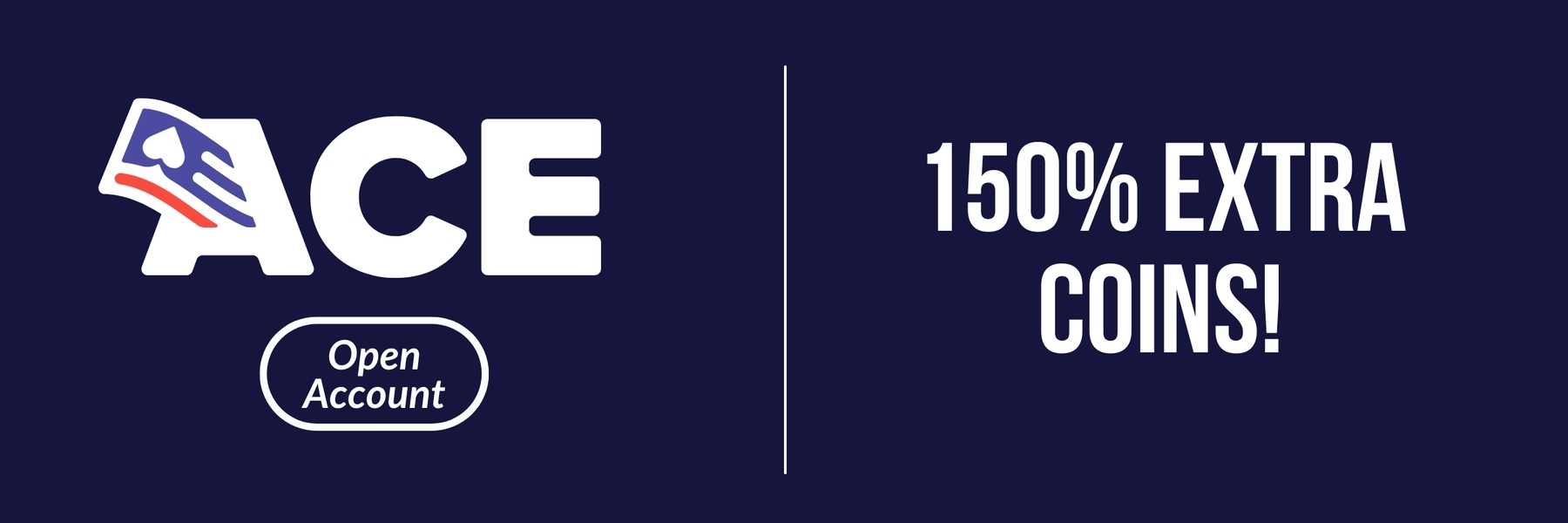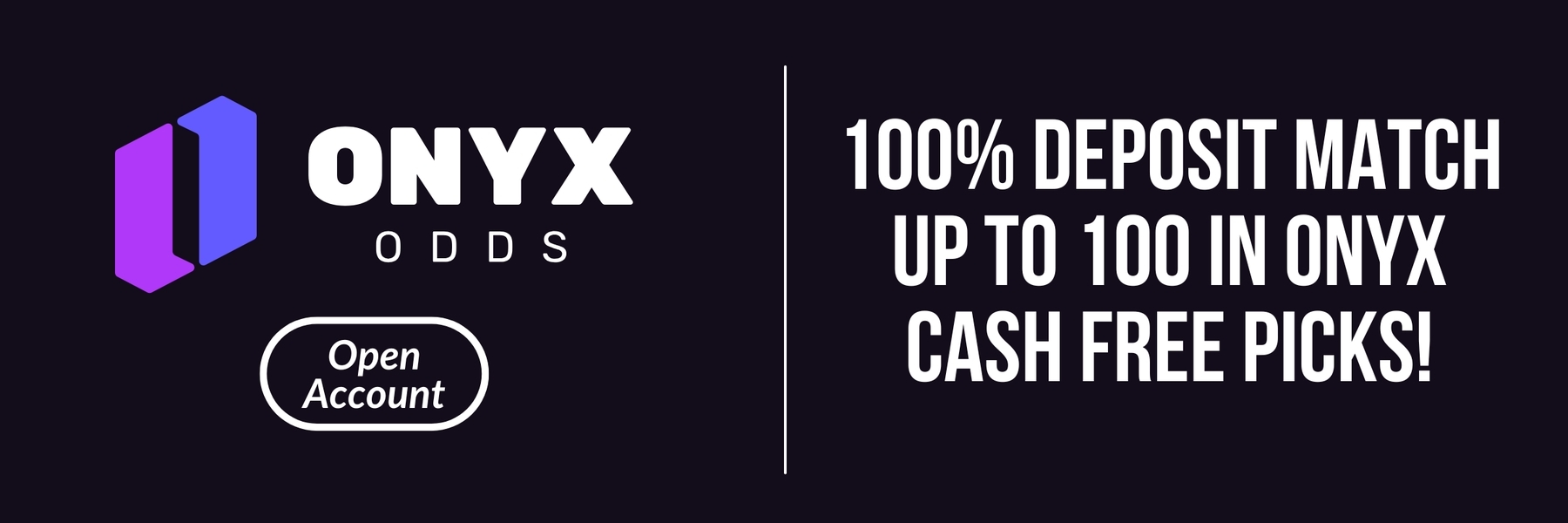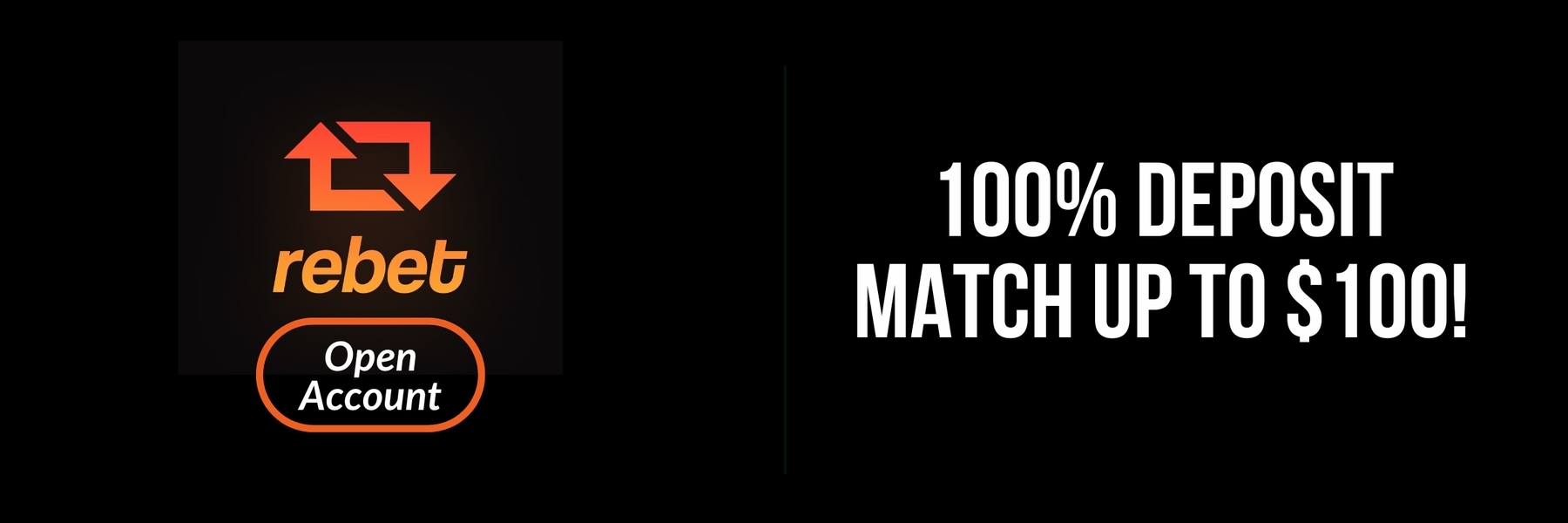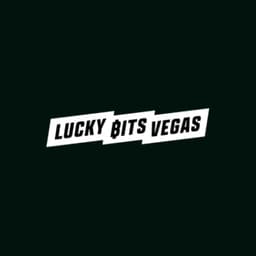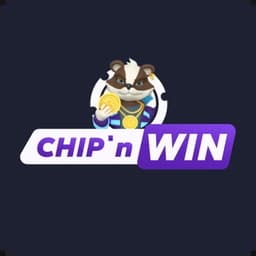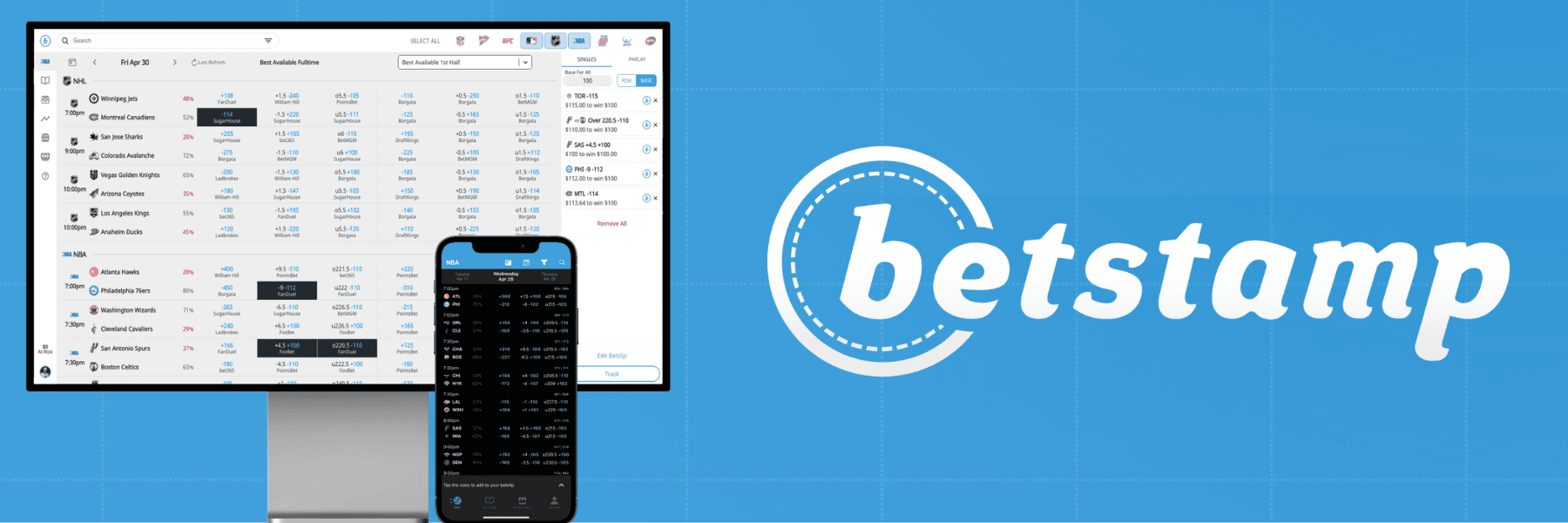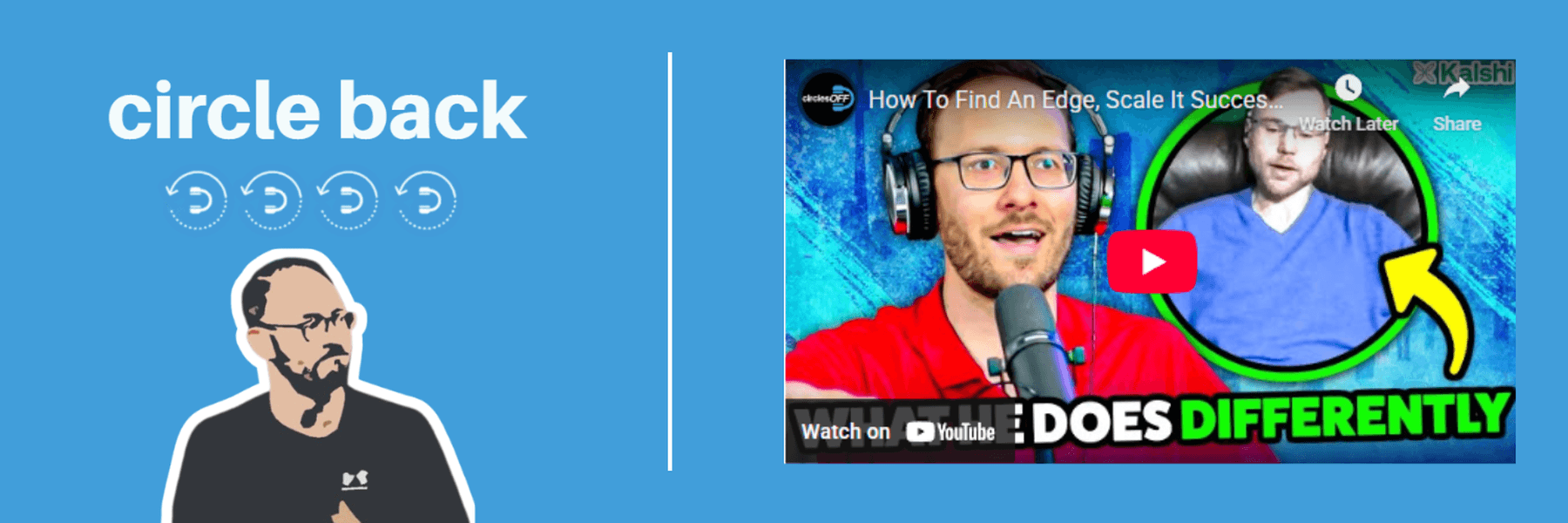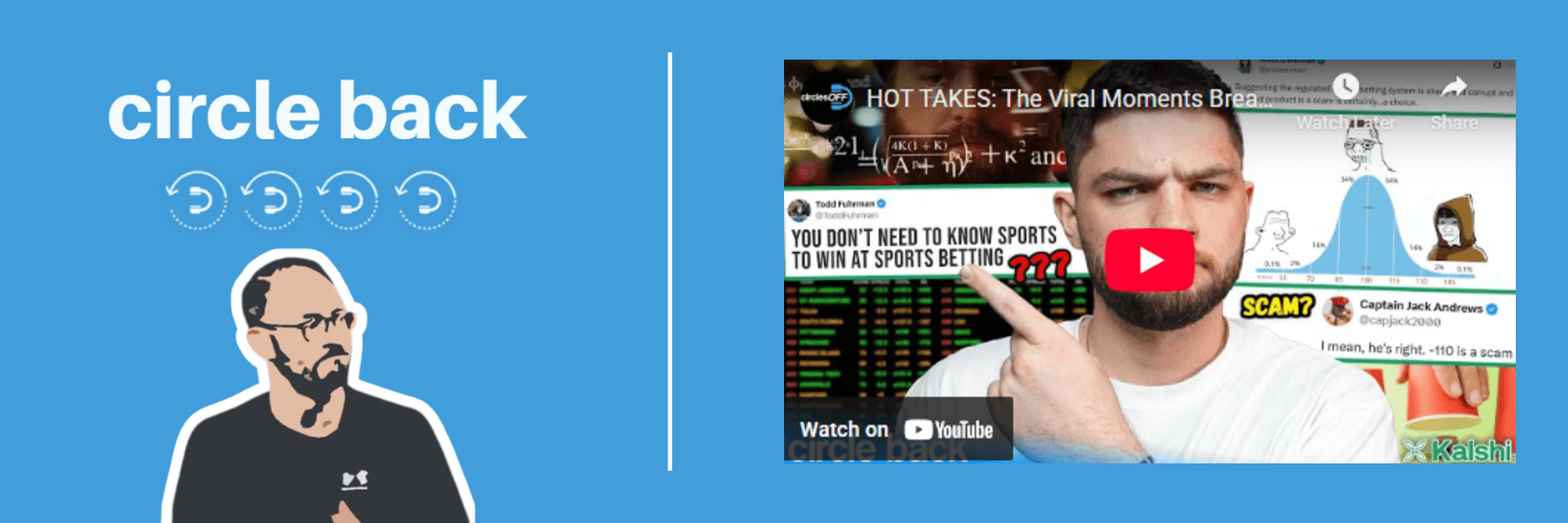00:00 - The Professor (Guest)
I've even had conversations with guys who work at a FanDuel or DraftKings and they'll just kind of tell you like yeah, we just kind of put a number up. It's like, well, how do you get there? They're like, yeah, someone just says he thinks this should be the number and we put that up. It's like it's so attackable, right, come on.
00:16 - Johnny (Co-host)
Let's go. You think I'm going to come on here and put one of the Aussies in God. You're the elite dear. I'd vote for Rob of $25,000.
00:23 - Rob Pizzola (Co-host)
I wouldn't vote for you. I can basically just cheat and get the same bets that they're getting. It's weird because you can also pay your bills at the same place where you bet. I mean, you're a short guy.
00:38 - Johnny (Co-host)
What? This guy talks a lot of trash. He's talked a lot of trash about me, Rob, a lot of people in the community, but he's refusing to show his face. Clouding yourself as a pretty good NFL gambler.
00:47 - Rob Pizzola (Co-host)
I thought you were an idiot. Say testing, testing. I'm a cuck. One, two, three, four.
00:52 - Johnny (Co-host)
Aussies going head to head with the Aussies. That's what I grew up for and I said, get him Kirk.
00:57 - Rob Pizzola (Co-host)
And they call me a mean-spirited name.
01:05 - Zack Phillips (Announcement)
I don't hang out with him. The toronto maple leafs at 14 to 1, staring me dead in the face. I'm already getting uh, you know a lot of uh, a lot of a lot of early. This could be the best circles off episode we've ever.
01:11 - Rob Pizzola (Co-host)
That's ever been done welcome to circles off episode number 180 right here, part of the hammer betting network and presented by pinnacle sportsbook. I'm rob pizzola, johnny from betstead back in the saddle I'm back.
01:24 - Johnny (Co-host)
I had one more in me one more, one more in.
01:28 - Rob Pizzola (Co-host)
It's been a long time, man, since you've been in here with me couple, uh, couple episodes off for sure.
01:33 - Johnny (Co-host)
I'm looking forward to uh it gets lonely here without you.
01:36 - Rob Pizzola (Co-host)
I'm not even just saying that sometimes I do solo interviews and I just like I look over and it's just an empty seat you put the mannequinsins I put Kirk Evans in here sometimes as well.
01:45 - Johnny (Co-host)
How are those ones?
01:46 - Rob Pizzola (Co-host)
They're okay.
01:47 - Johnny (Co-host)
Compare me to Kirk as a host.
01:50 - Rob Pizzola (Co-host)
Well, I don't want to do this for one, but we're doing it. We're doing it. It's just really different. The interviewing styles are very different. Right, kirk doesn't come with anything, he just sits here with the phone and he like kind of just really reacts in time and and interjects his questions whenever, um, you know me and you kind of have like a cadence of when the other person's going to jump in or not.
02:15
Yeah, we learn kind of like a look or whatever, yeah, so it's just different when you're hosting with somebody different but he does a good job. I like it's a different perspective. The solo interviews are are more challenging, but they're also easy. I don't like, I don't, I'm not ripping here. They're easier because it's all your line of thinking, so you're just constantly in like I'm gonna ask this, this, this and then pick up on stuff. It's all different, though, man, it's all different everybody subscribe to the channel.
02:41 - Johnny (Co-host)
We need that youtube 100k subscribers plaque.
02:44 - Rob Pizzola (Co-host)
Yeah this is getting ridiculous. Now I go through youtube I I see what's out there in the Subscribe to the channel. We need that YouTube 100K subscribers plaque. Yeah, this is getting ridiculous. Now I go through YouTube, I see what's out there in the sports betting space. Like I can't even. I know it's a vanity metric, right, it doesn't really mean anything. Our viewership is what counts. Our watch time, like all that stuff, is a lot more meaningful than the subs. But it pains me to see some of these channels hit like 50k subs, 100k subs, it. It hurts me deep down watching people who don't know about sports talking about sports. Just taking me to the cleaners so we're gonna get there.
03:22 - Johnny (Co-host)
We're gonna get to the 100k subs. And, speaking ofK, if you want to bet 100K, there's only a few places you can do so, but on NFL, you can do so at Pinnacle Sports.
03:32 - Rob Pizzola (Co-host)
Pinnacle Sports been in business for the past 25 years. For a reason. They have great limits. As Johnny said, NFL Sundays get down basically whatever you want, but you can also do it at really good prices relative to the rest of the market, which is one of the most important aspects of betting. Instead of betting a minus seven at minus 110, you can bet a minus seven at minus 105. It makes a huge difference to your betting. So add Pinnacle to your portfolio. Pinnaclecom slash hammer If you want to check them out, you must be 19 plus, not available in the US. And, as always, please play responsibly. Our guest this week is the head trader for a very respected betting group, Citadel Sports Group. You can follow Citadel on Twitter or X at Citadel Sports LV. We'll link that down in the description below as well. The professor joins us this week on Circles Off. Professor, how are things Great.
04:26 - The Professor (Guest)
Thanks for having me on, guys, super appreciate it.
04:29 - Rob Pizzola (Co-host)
Thanks for joining, thanks for joining us.
04:32 - Johnny (Co-host)
So basically, listen me and you know each other. We've met at Bet Bash. I know you've been around in the sports betting community, but I wanted to get started basically by allowing you the chance to tell your story how you got started and where you got to today.
04:46 - The Professor (Guest)
Sure, probably similar to a lot of other people you guys have had on, I was a poker player first and foremost. Got into that when I was 21. I'm 38 now and I had a you know, really that just kind of took off for me. That really changed my whole life. I didn't really know what I was doing before. That Got into professional gambling and it just was everything clicked for me, did that for a while. It was really.
05:12
I moved to Vegas, kind of after the whole Black Friday thing, which was in 2011. Up to this point I never really did much with sports. I would bet for fun, with friends, never really got into it. And then around 2013, 2014, when DFS kind of started to blow up maybe a little bit later it may have been 2015, 2016, started to get into that. I was a huge NBA fan so I did a bunch of NBA DFS. I was obsessed with it. Then it got hard and I couldn't beat these guys anymore. They just really got very good at it to the point where I couldn't beat the rake. So I moved to props. I was doing NBA props for probably two years, not for big. It was more of like a fun project to me. I was still playing poker full time. So I did that for a while.
05:59
And then one of my good buddies in poker was kind of organizing like a running group that would help guys get down for football, and I didn't know much about it at the time. I mean, he just kind of brought me in and I had some good outs just from being connected to the poker scene at a pretty high level and I was just helping him. And then one thing led to another. We were kind of doing that in the winters and I was playing more poker in the summers and like World Series and everything was going on there. So it was kind of on again, off again with that and we were both kind of doing that. He was also a poker player.
06:31
Then COVID happens. You know, all these legal books start blowing up. During COVID we kind of both sat down and we were like you know, we can't really play poker right now. Let's really go all in on the sports thing, um, and see what we can do with it. Then we kind of expanded on his moving business. We knew that's kind of you know the start we had and we went really hard on the legal outs. We were going to arizona like every weekend. I mean, it was like a big, big boom and uh, yeah, we just over time we just built it up more and more, and now I'm here today.
07:06 - Rob Pizzola (Co-host)
I want to ask you about the origin of the alias Professor, because I mean lots of sports. Betters use an alias. It's not. You know, me and Johnny live by our real names, but probably 95 percent of people I deal with I know by an alias. I never know their first name actually. So, professor, what is the origin of that?
07:24 - The Professor (Guest)
It's kind of funny. So when we started, my partner and I, it was really just us two and like one other guy. And then we kind of we were growing and we needed spreadsheet help more than anything, Like we were not experts at spreadsheets and we needed spreadsheets. So we hired this assistant. Her name's lovely, she's like honestly, she's still with us today. She amazing, she's like the best employee we've I could have ever dreamed of having.
07:48
But she I was very, very, very busy at this time like I had. So I was doing all the moving, I was doing all the accounting I was, I was doing like everything for the business and honestly, I kind of got a reputation for just being like short and blunt with people and she would get like kind of afraid to talk to me and she would mention to my partner like he's like a professor, like grading my work all the time. And I didn't have a nickname. Everyone else had a nickname or an alias and I was like you know what, I'm just going to go with this one. So I did and there it was. So it honestly was kind of born out of me being a bit of a jerk, but honestly I just needed to save time it was like I don't have time to make like nice calm messages, like I need this done now.
08:34 - Rob Pizzola (Co-host)
And nowadays I'm a little bit smoother around the edges, I hope, but that was how I got the nickname. I really thought you were going to go with lovely is lovely, but then you paused and said amazing which was she's lovely too, but she's more amazing than she's lovely.
08:46 - Johnny (Co-host)
So that's not an alias.
08:48 - The Professor (Guest)
No, that's her real name.
08:50 - Johnny (Co-host)
Understood, understood. So, in terms of your, where's that from Nice? Nice, we'll get into the Basically your role right now. Obviously, your group has expanded. You're not doing the accounting anymore full-time, I would imagine.
09:04 - The Professor (Guest)
Thankfully no.
09:05 - Johnny (Co-host)
What are you?
09:06 - The Professor (Guest)
doing right now. So nowadays most of what I do is work with originators. We have a team of four guys that we all work with the originators directly. You know, if you're an originator that gets put in touch with us, chances are you're going to be put right in touch with these four guys with us, including myself. I figure out ways to make that work. That can be all different. There's different needs for different originators. Some guys just want the absolute best price in the market all the time. Maybe they don't have access to the same amount of books that we do. Some guys need really quiet fills where the market doesn't move at all, but they're not as sensitive about pricing. So anything I can do to figure out how to work with these guys, that's what I'm trying to get in there and do. But there's a lot of other stuff there's. You know, making sure accounts aren't leaking, as far as causing line movement, you know any number of other things.
09:54 - Rob Pizzola (Co-host)
I want to talk to you. You mentioned that COVID was kind of like this point where you guys decided to really go into this. You know this side of the business, so to speak, and I will say just from an outside, looking in perspective. I deal with a lot of different betting groups. You guys have really grown I would say I would even call it exponentially over the last couple of years, where I think most people in the space know of the name, at least at this point. So it's a pretty short period of time for a smaller group to have established these types of partnerships and this type of reputation in the space. Can you walk me through the early days, like what's the USP for you guys? How are you selling people on working with you and how did you grow the business in the early going?
10:39 - The Professor (Guest)
Yeah, it's a great question. So when we started out we realized pretty early on that we were kind of the new kids on the block and there was no reason for most people to work with us. So we kind of we set out to make sure that there was no reason for people not to work with us as well. So we were extremely flexible as far as the deal structures we would do. We were extremely flexible on what accounts we would take. You know there's a lot of bad accounts out there, as far as I'm sure you guys know, as far as PPH accounts go, that middlemen need to dump off to vetting groups and no one will take them because they're an hour limited and you know they're just no good. We would take all of those.
11:19
I mean, we did all this stuff to make sure that we were as easy to work with as possible. If you message us between our, you know our hours typically are about 5.30 AM to maybe 9 PM Pacific. If you message us in that window like, you're getting a response within 30 seconds every time and if it's that long it's because you know we're busy doing something else. Usually it's immediate. So all that stuff was really important to us to make sure that we were just as easy to work with as possible and over time I think it was you start off with one or two people, they mention you to someone else, they mention you to someone, and it just got to be one thing after another.
11:54
The other thing I would say that was really helpful for us is just the sports community is just a great space. You know, people like Shane Sigsbee and Harut and Drew they were just. They're local to us. They were super helpful when we started out. They could have been, they could have treated us a lot differently than they did, but they were both amazing to us. Even though we were, like you know, a lot of overlap with those guys, they never viewed us in a negative way and they were always helpful and you know we're super thankful to have that.
12:20 - Rob Pizzola (Co-host)
And, looking to, you know, pass it forward to new people now thankful to have that and, looking to you know, pass it forward to new people now. Yeah, it's actually kind of interesting because you don't always find that in the sports betting space, especially when some people start to I'll call it like infringing on other people's territory, you tend to get some hostility. But we've had uh harood and drew both on this program before they're both great guys.
12:40
I've talked to shane sigsby last time I was in Vegas another great dude as well, so not a surprise to see that.
12:47 - Johnny (Co-host)
In regards to the business. So you've mentioned a lot of key buzzwords which I know probably about half our audience understand. Half don't the one I want. We've never talked about this before. But you said a couple of bad PPH accounts. Right, I definitely know what you're referring to when you say the one hour delay, but what do you mean? What are some bad PPH accounts? What are some of these agents do to, you know, hopefully, avoid?
13:07 - The Professor (Guest)
Yeah. So I think you know I don't I'm not an agent, I don't know exactly what they go through, but from what it seems to me, a lot of these guys will get bundles of accounts that they're trying to give out to people and you know you'll have 10 them. We can, we can split them and okay, great. So we'll take them and we log in and some of them are great. You can bet college basketball at five 30 in the morning. Others are maybe they start out like that, but after a week they see you're kind of sharp, they don't want to take action, that they think that they they're going to lose on the book. He changes the settings All of a sudden. It's, you know, you can bet one hour before post and spreads only. Or you know, maybe college sports are turned off completely and all there is is NBA and NFL in there.
13:50
And the fact that we were taking these accounts and like trying to get some volume into them, I think meant a lot to a lot of these guys and made us really easy to work with, where, if they got future accounts that maybe were a little bit better start, some of them started to come our way and even if we were, you know, maybe slightly taking the worst of it on some of these. We knew that long term it was going to pay off um, and I think it has, and it's been uh it's, I think having that reputation of being able to help out people that, with some stuff that wasn't necessarily the easiest to work with, was, uh, was good for us at the beginning yeah, I love that and it makes a lot sense.
14:23 - Rob Pizzola (Co-host)
You sacrifice a little bit of EV in the short term, betting at post, whatever you're paying the VIG, but you maintain a long-term relationship with that agent in particular. They come to you down the road with some better accounts makes a ton of sense.
14:37 - Johnny (Co-host)
Even better if you can win on those ones too.
14:40 - The Professor (Guest)
Yeah, one of the things that I prioritized when we were starting out was just getting some halftime action into the business one way or another. I do a little bit of that with basketball myself, and then we have lots of guys nowadays that will fire halftimes. But anything we could get with halftimes was great, because any of these time-limited accounts it was immediately something you could put into them right, because halftimes are basically live bets. So all those restrictions were gone for halftime, so they were just a great way to get action into those accounts that are really hard to get action into.
15:10 - Rob Pizzola (Co-host)
Makes sense. You also, johnny's talking about buzzwords maybe less of a buzzword, but you mentioned that you work on a risk on basis with partners. Can you just let the audience know what that means as well?
15:22 - The Professor (Guest)
So our business model is looking to partner with winning originators, these guys. There's going to be a lot of times where you partner with someone and maybe it turns out that it doesn't go the way you want it to, but that's what we're aiming for. You know we're trying to find guys who win that we can partner up with, and you know we help them get down. In exchange for that, you know we bet with them, we bet alongside them, and you know we believe they're going to win over a big enough sample. They do win, um, and that's that's the key for us. Uh, you know, there are definitely times where we partner with someone and we can't help one way or another, whether sometimes that's just not being able to get down on whatever their market is. You know, one thing we run into all the time is people who want soccer help and where I would love to be able to help with soccer, but we just don't have, uh, you know, the competitive pricing that you know some of these European guys are looking for.
16:09 - Rob Pizzola (Co-host)
So I assume it's not major soccer leagues either. Most of the time, no, it's yeah, it's.
16:14 - The Professor (Guest)
You know, albania too, or whatever. That is just like you know. Good luck trying to find minus one 10 on that in the States. It's just not happening. Um. So, yeah, I mean our, our, our main focus is to find guys that we can grow with, but there's also lots of other volume out there that you know. Maybe these guys are bigger than us or way bigger than us. That we're just helping them and we're happy to help with that too, but it, it, it's a huge. There's a huge spectrum of winning bettors out there, and we just try to help as many of them as we can.
16:46 - Rob Pizzola (Co-host)
How do you decide who you're going to partner with, because I'm sure lots of originators reach out to you. What's that process like for you?
16:53 - The Professor (Guest)
Yeah, at the beginning I would say we just said yes to literally everyone and over time we've kind of learned. Like I said, with the soccer there's some things that maybe we're not going to be as good at Right now. We try to bring in almost anyone. We go as far as doing some free roll deals with people who we think are on the start of their journey that maybe don't have the capital to go full risk on. And for me as the head trader, there's a lot of ways I can look at things. You know, are you aligned with other? Sharp is a good starting point.
17:29
Like, if someone's always playing something that seems to be getting smashed in the market, that's not a good sign, but for the most part that's not the case. If you're regularly getting CLV, that's a huge you know huge positive. That I look for. You know even just when people play I think can be pretty indicative of if they're going to win or not. All these markets have patterns and they have periods of activity and periods of softness and periods where they're really tough. And just seeing that someone has a good intuitive understanding of when they're placing their bets and when they're trying to attack the market is a great sign, even if maybe they don't have the results right away, because a lot of times you are going to run into a case where you know you have a hundred bet sample at the beginning. That's just not very good and trying to just, you know, just don't want to throw the baby out with the bathwater every single time in that situation. So any additional way that we can evaluate someone is really useful for us.
18:24 - Rob Pizzola (Co-host)
I actually love that, by the way, as like a criteria for you know, weeding out bad bettors is basically like what is the bet timing look like? Are they placing the bets at the proper time type of scenario?
18:35
Because I can tell you right now based off of sports that I bet that would be. It's an often overlooked criteria that it's very easy to understand if someone knows what they're doing or not, especially like late week nfl. If someone's just firing off of nothing because the market is there, I would you know I don't. I don't book action. I'm not saying that I do, but like that would be someone that I would be very interested in booking in the long run type of situation yeah, I mean a lot of the times with these.
19:00 - The Professor (Guest)
Uh, oh, sorry, go ahead I was gonna say it can even go the other way too, like some of these, some, some people, I think, go too early sometimes where it's like they, you know, yes, it's, it's great to go early sometimes, but some of the time it's like, you know, most of the strength we see in the clv is actually a football market. Like I would say, wednesday is usually the stuff that we, that you know we're betting, that gets the most clv ahead of the monday, tuesday stuff. So it it's. It's not always a one-to-one like just going late, there's a. And also like the time of day like there can be in a daily market can be, you know, in in the nba, for example. Like the afternoons are a lot more busy. You know, from two to four pm, pacific is a lot more busy in the market than from 11 to two. Um, you know's probably a better time to bet than the earlier part of the day.
19:48
Market will overreact to injury or whatever else, and you can actually get some edge that way.
19:54 - Johnny (Co-host)
Do you try to read the screen as well and predict a lot of these moves, or are you guys doing any of that?
19:59 - The Professor (Guest)
Yeah, so that's one of the cooler parts about being a head trader, I would say, is you just see so much stuff coming in all the time that you can kind of get a feel for these markets and where the when the best people are betting. And you know, there's been times where, like, I'm on vacation or whatever and I'm not really, you know, necessarily working, but I'm, I have the screen up and I can. I'm not, I don't even have Telegram or whatever open and I can just up so-and-so's betting. Now I can just look at the market and see it, um, so you definitely get a feel for that, which is cool. I do definitely do some screen trading and screen reading.
20:34
Pattern recognition is super important in any sort of trading role, whether it be, you know, finance or or this, um, so that's definitely important. But, uh, I don't. But I try not to obsess over it because you'll just never see the sun if you do that, but I do try my best to keep an eye on it in working with you guys was hey, rob, we can get down quietly, which a lot of people say they can do in the industry which without moving the screen.
21:09 - Rob Pizzola (Co-host)
Can you talk about some of the operational challenges in getting down quietly, because I've worked with lots of movers before and this is a selling feature that everyone tries to use. But you'll work with a mover and you'll notice that, hey, this didn't turn out to be very quiet at the end of the day. What are some of the challenges you face with getting down quietly for some of your larger clients or customers?
21:34 - The Professor (Guest)
Yeah, I mean, honestly, the first thing I would say to that is just and I think a turning point we had where we started to get better at it was just recognizing how jumpy the market can actually be, because we were probably falling into that camp you just described when we started out, where we were saying we were getting something down quietly, so-and-so book would move and we would think it wasn't us, but then maybe it was us for some reason. So logistically it's very difficult. To be honest, it's a pretty constant battle. We're always trying to catch accounts that are causing movement, and nowadays when I hear that we're causing movement from someone whereas in the past I might have been kind of defiant and say like no, that wasn't us Now my assumption is like OK, probably was one of our accounts causing it. So I mean there's definitely things you can do that help For me.
22:25
I always think the less amount of books you can hit, the better. Uh, if you can fill someone with two books, for you know, 10 times each, instead of 20 books for one, that's going to be much better. You're just, you're only putting information. You know a couple of places rather than a whole bunch of them. Um, you know, counters can be useful, certain casinos can be useful. There's a definite efficiency to it and order of operations and it can depend sport to sport. Which is better, which isn't. You know, some guys don't even want stuff getting down quietly. Then you kind of have to take a whole different approach because you're not going to get as much down. You know, one of the big things with getting down quietly for us, I think, is just making sure we have time From our side of things.
23:10
One of the things that can be frustrating for us is someone asks us to get down quietly and they send us a play and five minutes later we haven't even bet a dollar and the market blows up. Or they tell us that we're the only person who has the bet, but I've been sent the bet by five people. It's like okay, well, I don't think we were the only ones causing this. So it can go both ways for sure. But I think, just being attentive and really being meticulous in the account management we switch up accounts all the time.
23:41
You have to plan some fakes sometimes so that it just doesn't cause steam. We actually, some people, don't care if you move the market, if you can move it back after. That's another thing that can help with some of our fake profiles, but it's nonstop. I mean, people are always looking for stuff to tail. I mean, just look at, like, tout Twitter, like I mean, imagine it times 10 with some of these accounts that are winning all the time. So it can be challenging, for sure, but I think if you have a really good dedication and you're meticulous about it, it can be done.
24:12 - Johnny (Co-host)
It's very fascinating. It's almost like you mentioned pattern recognition, but the whole thing is kind of a game. When you're, I guess, moving for other people it's a cat and mouse game of making sure that you're able to do it long term. One time is easy, but to do it forever you're then against people who are screen reading yeah we're picking up on the same patterns, so it might not the same thing you do. That doesn't trip the screen for three weeks in a row. That fourth week you do the exact same thing gone.
24:42 - The Professor (Guest)
You know what I mean 100 and and it's always changing, and that's that's the thing that's difficult about it. For sure is, you know we'll bet, we'll be, you know, moving college basketball games in the morning or whatever, and and we'll have a list of five that we're doing and we'll get through the first three with no problem whatsoever and we'll hit the fourth and it will blow up and it's like, well, what the heck just happened, like we didn't do anything different. But it's like you know that maybe some, you know, maybe they decided that this was sharp or whatever, and someone decided to tail it, or maybe someone at the other end of the line you know that's looking at the account just woke up late and only saw the fourth one. Like you don't, you don't know what is causing it and it can be anything, and the screen is so jumpy these days, with some of the limits that a Chris or a bet online are taking, that will move 13 books if they take a $500 bet. It doesn't take much at all to cause some steam.
25:34 - Rob Pizzola (Co-host)
How much time goes into actually diagnosing what might be an account that's causing this type of movement? What happens when you get into those situations Exactly what Johnny described of like things are going well. Now all of a sudden, you've bet out a few plays and you notice the market's moving entirely. What goes into diagnosing?
25:55 - The Professor (Guest)
that yeah. So one of the things that we'll usually start with is let's say we, let's say we bet you know an NBA total and it blows up on us, you know we'll, we'll look at all the accounts that bet it. Start there. And then what I'll usually do is start with the smallest ones and just start putting in fake plays and see what happens. If it's one of the small ones, that's actually if I get a $200 account, that's in the line.
26:17
It's amazing. It's like the most valuable account I have all of a sudden. So that's where I start, and usually I have a decent idea of, like, which ones might be causing it. Um, and I can start there. Uh, maybe I've had the account for eight weeks and I've been winning every week. That's usually a sign that could be getting followed, like, why are they taking this action still? Um, so you know I'll I have different ways to start, but I'll usually go through one by one, or maybe I'll hit three together and see if that causes any movement.
26:47
But it's just testing, it's just really just trial and error. There's no like. It's not like I can reach out to agents and say, like, hey, which one of you is following bets or the bookies behind the accounts? I just have to test them and once I find it, I'll cycle it out, use it for a fake profile, use it for something that I know is going to steam anyway. That doesn't really matter if it steams. So it's still getting some sharp plays and there's no alarm bells going off, but it's, it's constant, it's. I mean, the amount of time is a hard question to answer, because it's it's all the time yeah, I think you kind of answered it without giving a specific time.
27:19 - Rob Pizzola (Co-host)
It's just an ongoing journey. Basically, absolutely how big is the operation right now?
27:26 - The Professor (Guest)
Pretty big. We have, you know, guys that help us move as far as like casinos around with, you know, running. We have our four main traders, including myself. We have a full-time accountant. We have a full-time spreadsheet person. We have a full-time programmer.
27:42
There's a lot of behind the scenes work that goes on to just make everything go as smoothly as it does now. Um, you know, we've automated as much as we possibly could. Um, down to if we get, if we get a new account, we have like a Google form for it nowadays, where the middleman or whoever's given us the account can just and it just shows up in telegram and just gets out, like anything we can do, like that is huge, to just lower the, because you just there's so many random accounts all the time. They're always getting closed, they're always getting opened. We get a new one, this one gets closed. It's just keeping up with it is impossible. And then there's all the accounting and there's all, and we have, you know, 40 partners that we have to make sure accurate figures go out every week on monday, it's, it's, it's, uh, it's a lot of us for sure yeah, that's, that's a big operation at one of the things.
28:31
When we started, um, my partner and I, we, we would we used to make we were both came from poker, which is a very like um, I don't want to say anti-establishment, but poker players are not, uh, nine to five type people, right, they they kind of look down on that and or or at least think that it's not for them. And uh, you know, we used to kind of poke fun at corporate structures when we were starting out about how silly they were and like that you didn't need to have all these departments. And like, as we got bigger and as time went on, like we just it's like an evolutionary, must you just have to do it or you just get too bogged down. So it was kind of funny the transition. Now we look at it and we're like we are the thing we once made fun of. You know, it's kind of funny.
29:13 - Rob Pizzola (Co-host)
How often do you work with originators that have I'll call it conflicting bets, so maybe different opinions on the same game?
29:20 - The Professor (Guest)
You see it more in the longer the market is, I would say. Or in the longer the market is, I would say. You know football. It happens quite a bit, but most of the time it's not at the same price, like usually. You see, and that's another thing when you're evaluating an originator is kind of when they're executing their bet.
29:37
You know if they're taking the under in a football game, for example, and you look at the lifeline of of the or the lifetime you know path that the line has been on where, let's say, it opened at 45 and moved up to 48 and then it's back to 45 or 47 by the end of the week or whatever the case may be. When they placed the bet did they kind of buy it at the top or did they get in at the proper point. So if we have two guys, one of them's on over 45 and one of them's on under 48, I don't see any issue with that whatsoever. They both could be good bets. And you definitely see a lot of situations where two models, you put them up against each other and maybe they disagree 15% of the time and obviously on those bets they're probably both losing. But there's enough good bets the rest of the way that they're both profitable independently.
30:26 - Rob Pizzola (Co-host)
How much of what you're doing is props oriented?
30:30 - The Professor (Guest)
More now than ever before, I would say, which is actually kind of backwards of what I would have thought. I like props. Like I said, I came from props, so I enjoy them. They're difficult to get down on for a few different reasons. Limits is the biggest one. It's just hard to find places to take big bets on props, and then the other problem would be they're less automatable than some of the other stuff. Different backends have different prop menus and going in and just placing every single bet with a hand bet can be pretty difficult. So you may just not have enough time to do that, especially when you're dealing with a lot of $300 and lower accounts. But we do have, I think, five prop originators right now. Some of them do different sports, but some of them do game props, some of them do player props, some of them do NFL, some of them do NBA, but we do a decent job getting down for all of them. I would say.
31:29 - Rob Pizzola (Co-host)
Yeah, that's um game props. I I haven't seen a lot of people working on game props. I hadn't I should say Love game props, and now they're getting more and more. Yeah, maybe it's because of you that the word's getting around now nowadays on game props gonna tell you.
31:45 - Johnny (Co-host)
Well, game props, by the way, the reason they're good is because they're you. It's uh, basically, at any time the game changes, it'll be a different thing, right? So the player props, the numbers, are roughly going to be the same, yep, even the matchups and stuff like that. But for game props, especially in some of these, let's say, basketball, for example, like if the team's a favorite or a dog, it's completely different. Like all these, all these things are different, so it's more better, a level of origination needed. I was going to ask you, professor, here so how many times you have originators where you give them a free roll and they lost?
32:18 - The Professor (Guest)
Quite a few Definitely happens. You know, some of them lose and like, I'm looking at it and I'm like this should win. I don't understand why they're losing. Uh, and we'll, we'll let them keep going for a while. Some of them we just can't figure it out, or that it's not working, and you know, a lot of times we'll refer these guys to another group that's maybe more suited to deal with them. That, um, you know, yeah, sure, give them to the groups you don't like, for sure, exactly, yeah, yeah, pass them along to some of the guys we have problems with, do you?
32:43 - Johnny (Co-host)
regret those. Do you always try to help them?
32:46 - The Professor (Guest)
Sometimes. Sometimes, you know it's probably like anything else with that, where nine times out of ten no. But then there's this, you know one out of ten time where the guy goes on to be a killer and you're like man, like we should not have let that guy go. So ultimately, there's only so much bandwidth that a four person team can handle and you do have to make cuts. You know we try to be as inclusive as possible and work with as many people as possible, but if a guy's not working out, or it's not providing any value, or his bets don't look good or I don't think it's going to win Eventually, we have to do something there.
33:23 - Johnny (Co-host)
Do you would you prefer a free roll or um a 50 50?
33:28 - The Professor (Guest)
We definitely prefer the risk on um. It's easier to work with, it's easier to grow with Um. You know there's there's also guys who have a risk on strategy but only want a certain unit size. Those guys are great Cause they can kind of grow with us where.
33:42
And the other thing with those guys a lot of times is if I think that their stuff is good which we probably do if we're at risk on with them let's say they want a 3K unit on a game where I know we can get a lot more than that, a lot of times what I'll do is give them some sort of okay, we'll get you 3K on the game, but we'll also give you a free roll on the season results for our way, you know, maybe we're betting it for more, like you know, five times that or something, and it's not really a fair 50-50 split. But they don't want that risk either. So it's like you know, for the stuff on top of what we're doing, we'll give you some sort of kickback because you are providing us with, you know, awesome value that we're able to go out and bet.
34:22 - Rob Pizzola (Co-host)
With more and more states legislating sports betting in the US and regulated sports betting nowadays, have you seen an evolution in the way that betting groups or sharp bettors operate?
34:45 - The Professor (Guest)
Maybe in terms of what they're betting, the timing of the bets, people going earlier, anything that you've noticed in recent years that has kind of evolved, um, I would the biggest change, I would say is just the increase in overnights. Um, especially in some sports that weren't as popular for overnights when I started this, which was more, you know, five, six years ago nba nowadays, I mean, the overnight market is incredibly popular because all these legal books post um and you know, I've I've even had conversations with, like guys who work at, you know, a FanDuel or DraftKings and they'll just kind of tell you like, yeah, we just kind of put a number up. It's like, well, how do you get there? They're like, yeah, someone just says he thinks this should be the number and we put that up. It's like it's so attackable, right, that there's so many groups that are betters, that want to go after it.
35:25
Obviously, it's tough to keep your accounts open if you're destroying overnight lines and that's where some things, like you know, counters and casinos around around the country, can be good betting partnerships for us. But yeah, I'd say props is another one that's gotten, I'd say, more popular in the last three years. You just see way more props. Same game parlays have become pretty popular as a way to kind of camouflage accounts. I think parlays and round robins in general have gotten a little bit more popular in the Sharp community, where I never used to see them three, four years ago, and now they're a decent weapon and they're a way to keep your account open a little bit longer too, I think.
36:05
So, yeah, I'd say those are the main things. And then the other thing too is just that there's been more legitimacy given to these sites, I would say, even as maybe they've become less of a legitimate place to bet. More people are aware of their pricing, they're not just ignoring them as a possibility altogether. Whereas in the past if DraftKings had minus three, minus 105 and everyone else had three minus 110, we wouldn't really get asked about the minus 105, nowadays we people are on top of of all these legal book lines. Bank odds is listing all the lines and you know, to all these books. Um, whereas in the past it was pretty tough to get some of the stuff on on a dawn best, and you have unabated these days, so the general knowledge of these books and you know, the eyes on them, has only increased.
36:52 - Rob Pizzola (Co-host)
What's your propensity to bet early for someone. So if someone came to you and said, hey, listen, I got a pretty big edge on whatever let's say NBA overnights, but I know I can't beat game day market Would you potentially work with that person?
37:05 - The Professor (Guest)
For us it always depends on, you know, if we could make it work from an amount perspective. You know we're limited, like everyone else, when it comes to amounts. We can obviously bet a lot more at 2 pm than 2 am when it comes to, you know, nba. So if they're looking for a small enough unit that it can make sense for both sides, we don't need to get this huge unit on everything, like if it's a small sport or a small market. Whenever they're betting it and they're they want a small turn in, that's totally cool with us, you know, and we'll we'll do our best to make sure that we're not moving the market.
37:33
Even still, it's definitely harder. The earlier it is, the harder it gets to not have any movement and sometimes it'll be such a small upfront with people and giving them fair expectations I think is the biggest key with that. Don't promise you're going to get them 10 dimes on an NBA overnight when you're just not. It's just there's no way you're going to do that unless you have a whale account and if you do, you probably don't want to use it on that.
38:08 - Rob Pizzola (Co-host)
So it gets to be kind of tricky. Where do you stand on account priming? So there's different schools of thought here in regards to betting into accounts. Some people like to just go balls to the wall, so to speak, and say listen, I have an edge here, I'm going to bet these edges until I'm cut off. Other people like to groom the account a little bit more, maybe play some bad bets along with some good bets to try to mislead. Where do you guys stand on that? Do you do the balancing act or are you just firing wherever you are?
38:32 - The Professor (Guest)
Honestly, we do do the balancing act. I like to kind of base it based on what time of year it is. So obviously right now it's November. It's a huge rush in the sports betting space every year with college basketball and NBA and NFL. Everything's running concurrently and I think accounts that are primed have a very high amount of value right now. So a lot of times what I'll do over the summer is prime accounts. We don't have a lot of great stuff going on, so maybe I'll just fire off some random baseball money lines or live bets and it doesn't have to be often just a few bets here and there and yeah, you're going to lose some money getting that account ready. But if you can have it ready to go in October, november, where it's taking a good amount of action, you can make a lot of money in a really short amount of time before, because really what you're dealing with there is time, right. Maybe you have a week before it starts to get limited, maybe you have two weeks, so you want to get as much action as you can in that one to two weeks.
39:29
If you have a primed account and it's June 8th, what are you going to do with it? Fire off WNBA for two days and there's three games. It's not really that valuable. So that's kind of the way I determine whether or not I'm going to do that. I definitely think it has value If you have time to do it. If you're just one person, I think it's worth doing. But it does take time, it does take effort. It's easier to just blast off accounts If we have an unlimited amount. I'd rather just blast them off every single time, but we don't.
39:59 - Rob Pizzola (Co-host)
Yeah, that makes a lot of sense to me. Out of curiosity, has there ever been any thought from you guys in particular because of the likelihood that you have a lot of accounts to not actually working with originators at all and just doing your own betting potentially some top-down stuff, potentially just understanding enough about sports now to be able to beat certain markets? Has there ever been any internal conversation about that?
40:25 - The Professor (Guest)
Absolutely. It's definitely something we're trying to focus more and more on as we've gotten bigger and as we've gotten more accounts, and that's why we like to work with small originators too is people that we can bring on and become a full-time partner with. It's a lot easier to move the game and get more down on the game. If you're the the one with the number, then you're just moving someone else's number. I mean even something as simple as, like maybe we get sent to play, that's that's you know, that we really think is good and and, and the originator says it's, you know, good to over 38 and NFL game. And you know if we're making that number and we know it's good to 39, that's a huge difference than if we just know it's good to 38. Right, and so that extra bit of information and knowledge is incredibly valuable.
41:13
We do do a little bit of origination now. Like I said, I do some NBA, we do a little bit of WNBA. It's not a huge part of our business yet. We do some college football, but it's definitely something we want to do more and we're definitely looking for more originators who want to be, like you know, kind of full time with us, so to speak, if things go well.
41:34 - Rob Pizzola (Co-host)
So where do you see this headed for Citadel, like, if I'm talking to you in five years, you know, usually at the end we ask you to go back in time five years. I'm going to accelerate five years. Where do you see the betting group five years from now? Like, are there any significant expansions or innovations for you guys?
41:54 - The Professor (Guest)
What do you think that looks like in the year 2029? That's a tough question. I mean, I would say there's more in-house origination, more moving our own stuff, you know, more being the source of our own bets. I think is the main thing there. But honestly, I don't know. I mean, if you had asked me, we've joked around, my partner and I about you know.
42:14
The only thing we know next year is that next year is going to be different than this year. We don't know how, we don't know why, but it will be way different because every single year we've planned for something and then it's just been totally different than what we think is such a fast moving space. There's been. There's been this huge legal boom. There could be a huge legal contraction coming, like who knows what's going to happen next? And, uh, I think just staying flexible and not having a firm vision is kind of one of our strengths, right, like we're not tied to anything. I would love to be able to grow out our own origination team, but if that doesn't happen and we have to pivot to something else, we're totally cool doing that. Like we've always tried to stay really flexible with who we work with, how we get down, you know what type of accounts we can use. You know all that stuff is just a real high priority for us, um, so that we're not tied to anything specific. So do you think it's?
43:06 - Rob Pizzola (Co-host)
even worthwhile to plan ahead for a group like yours.
43:09 - The Professor (Guest)
I think it is good to try to plan ahead and try to not necessarily predict the future but at least plan for different ways things could go, and have a long-term vision that you're working towards, I think is important, but also realizing that a lot could change between now and whenever that vision is supposed to come to fruition, that you know, who knows if you have to change your plan or not. Um, you know, I definitely, like I said, the in-house origination, the growing that sort of thing is, is really important to us. But you know, that's today. Who knows what it's going to look like next year? And maybe we find good enough in-house origination and now our focus is on something else. I don't, you know, we'll have to see.
43:51 - Rob Pizzola (Co-host)
Yeah, what's one misconception about betting groups like yours, like Citadel, that you'd like to clarify for the watchers and listeners?
44:00 - The Professor (Guest)
I don't have anything like super misconception, but one thing I think we hear a lot is you know Originator will be going through a rough stretch or a bad run, or maybe a few of them will. And you know, a lot of times we hear that you know it's fine for you guys, like I'm sure you're still winning, like we go through some rough stretches like everyone else. Um, you know, just cause we have a lot of exposure and a lot of different stuff coming in does not guarantee we're going to win. You know we have. We have our stuff that we go bigger on. We have our stuff that we go smaller on. If it, if the things roll out the wrong way, we have periods where we get crushed, like everyone else, and it sucks, just like it sucks for everyone else. So, um, you know, that's definitely one thing that I think we hear you know decent amount as a total group, then what's kind of like the worst losing streak you've been on.
44:44 - Johnny (Co-host)
Has it been like a matter of months or a couple of weeks?
44:46 - The Professor (Guest)
Honestly, this recent college football season was not great. Uh, I think I I don't know how many other groups you guys have talked to recently, but that's something I've heard from a lot of people is that college football has been brutal this year. Summer is always a dry spell. You know it's just not much money to be made over the summer moving. You know baseball is really thin edges. So I mean, six months is like as bad as it usually will ever get where we're. You know just kind of toiling around. You know up down, up down, um, but you know, if it's longer than that then I'm a little worried uh, on the on the other side of that.
45:23 - Johnny (Co-host)
So on the positive side, what's the most you've ever made from like one originator partnership, Like what's the most an originator has ever made.
45:30 - The Professor (Guest)
Uh, we've had seven figure partnerships both ways, uh, with certain originators, which has been awesome, has been awesome. Some of those guys like we were not going into that, expecting that too. I mean some of the bigger groups maybe you might expect, you know, with their unit size, that they're going to get to that point, but I mean we've even had some small guys grow out to be, you know, killers nowadays that have have done really well for those out there that might be watching this or listening to Circles Off and are considering a career in sports betting, but especially on the operational side or the logistics side, what advice would you give to them?
46:07
I think having access to lots of books is, or, if not lots of books, at least make sure you have access to some books that are not commonly accessed. Maybe it's Canby or whatever that you can get down big numbers at. You know, have your, have your niche to start out with that. You know, you can do really good work for someone Because, honestly, if we're working with someone and they are able to get down really well on one book that we don't have the best access to, they're a hugely valuable partner to us. So that's one thing, you know. The other thing with for us, when we started, like I said, we were just, we did everything we could to be as as easy to work with as possible, um, as reliable as possible, and, you know, just willing to take some of the short term worst of it maybe, or at least not the best of it, uh, and realize that you know that is going to pay off over time. And I think in the sports space, the, the, the growths can be kind of exponential, uh, if you find the right partnership. So be willing to kind of, you know, mess around with some partnerships that maybe you don't have huge expectations for, but you never know which one is going to work out really well and if they do, they pay for 30 bad ones. You know it's, it's uh, it's a. It's just really important to make sure you don't miss those opportunities, uh, and then, yeah, just just be as as reliable and as easy to work with as possible.
47:24
I think reliability is a huge thing. Um, I know, for us that's something that can be frustrating with with partners that are helping us get down. Sometimes is you message them? They're not around? I mean, that is the number one thing I would say I look for when we're starting out with someone is just, even if it's hey, I'm going to be around from 10 to two today and that's my schedule, like, at least I know that and I know, if I mentioned, you know, not knowing whether or not someone's around is really difficult, so that would be something to avoid doing.
47:51 - Rob Pizzola (Co-host)
I think if you're trying to get started on the logistics side of things, Before we close it off here with our closing questions, I'm curious are there any key experiences, or maybe memorable bets, that have significantly impacted your perspective on sports betting?
48:08 - The Professor (Guest)
I mean as an individual, better. I have a few that kind of come to mind. I know the year the Suns went to the finals I was like huge on the Suns. I bet them to win their division, I bet them to win the West. I was just all in on the Suns that year. So that was a huge sweat. I remember hating Terrence Mann because the Clippers were the main competition in the division and Kawhi and Paul George were just sitting out constantly, which is kind of why I bet the Suns to begin with, because I knew they were going to do that and Terrence Mann would just come in.
48:38
This guy is like no one ever heard of. He just had like 32 points and just win a game. I was just like man. I viscerally hate this guy. I still root against him to this day. And I won the bet. It's crazy, but yeah, that's probably the most memorable. I also, when I was not a sports bettor, another one I had was the Mavs to win the year. They won at plus 900, which at the time was a huge hit for me. I think it was 2011. But yeah, those are the two that come to mind for my own personal bets as far as a group. I can tell you how we got our name. This was kind of when we were starting out. I want to say it was maybe five years ago.
49:22 - Johnny (Co-host)
Tell me, you had a massive bet on the citadel back college basketball. No, it was the college football team.
49:25 - The Professor (Guest)
I don't remember we must have had, we must have had like a whale encounter. So I don't say I don't remember exactly why we had so much on this game, but we had. They were playing clemson, which is a very fair matchup, and it was like they were like plus 49 and a half or plus 50 and the total was like 53. It was like the game was projected to be like 49 to 3 Clemson, um, and I just remember we like we had a pretty good amount on it and it's halftime and it's just 49, zip, clemson. It's just like okay, this is dead. And then somehow Citadel plays them to a scoreless draw on the second half and we just scoop it and after that point we're like I guess we're just going to be citadel now, like we're just taking this name because that's we're never going to top that.
50:01 - Rob Pizzola (Co-host)
Oh, that's such a good origin story that's so good.
50:04 - Johnny (Co-host)
Have you ever had? Uh, basically, you ever look down and be like I have weight. We have way too much money on this bet uh, it's happened for sure.
50:14 - The Professor (Guest)
We definitely try to avoid that and that's one of the things that, like, a head trader is supposed to do is manage your position sizes, for sure. But there's been times where it's like, you know, maybe it's just four different people all send us the same game and it comes in at different times a day and different shifts or whatever, and we're not, we don't do a good job communicating that we already have this position. And then I'm like looking on saturday and it's like we really need nc state today, you know, or whatever it is. Uh, you know, and it can be nerve-wracking, for sure, but there's never been a time where we were like, oh shit, if this loses. But uh, yeah, there's it. It it happens for sure where you end up with a bigger position than you want, where you have like two and a half, three, three of your big unit on it.
50:55 - Rob Pizzola (Co-host)
You know that it's just like whoa do you just an extension of that question out of curiosity. So I know as an originator oftentimes when you're modeling a sport, uh, you'll tend to find edges on the same teams pretty regularly and against the same teams pretty regularly, and there'll be times where you just get a team wrong but you continue to send it anyways. You're like you know it's gonna turn at some at some point, like did do you ever get bets where you're like like fuck it, like I'm, I'm not, I'm not doing this again no more san jose charts definitely there are some stuff we've we've sat out for sure.
51:32 - The Professor (Guest)
Um one, actually one was just yesterday. We had people firing in the jets and I was just like man, like Hmm, what are these guys seeing in these jets? Like I just don't understand, like you know what. Maybe they have an edge, but like I'm good, I'll just sit out, like I'll fill it and that's fine. We don't need any position on this.
51:49 - Rob Pizzola (Co-host)
I thought I saw the same thing in the Jets and turned out I was completely blind.
51:58 - The Professor (Guest)
And I try not to insert my bet the Cowboys.
51:59 - Rob Pizzola (Co-host)
No, I bet the jets. Did you bet the cowboys? I did not. I had the eagle, so I'm lucky on that front.
52:01 - The Professor (Guest)
So the first, the first week of this season, uh, the first like week and a half, two weeks of this nba season to just this is just fresh. So it's coming to mind easy. But we had a bunch of people just repeatedly on the bucks and I was just like I'm a big celtics fan and like I kind Bucs. So it was easy for me to see that the Bucs weren't good, but I was worried that I was biased. And then by the end of it I was like you got, you guys are just wrong on these Bucs, like they're just not any good. Uh, you know, I'm just going to sit these bets out. No, thank you. And uh, you know so. And then those bets did stop eventually.
52:32
So maybe, uh, maybe, been wrong many a time where I, you know, I think a team has no chance. I mean I remember two years ago I think it was the first, the second Mac Jones year like every single week, patriots, patriots, patriots, patriots. Just like what are you guys seeing? But then they did pretty well against spread. So I was obviously wrong about it, but I didn't. I don't know what they were seeing yeah, I mean, listen, it's a.
52:56 - Rob Pizzola (Co-host)
That's the thing about originating. Sometimes you end up with great bets and you get to pat yourself on the back. You're like I fucking nailed that, I knew it was. And then sometimes you know you bet the carolina panthers getting four points against the saints and they lose 47 to 10 in week one. Or you bet the jets as a favorite against arizona and they get blown out.
53:13 - The Professor (Guest)
It happens that's uh it's gonna whether they win or lose in uh yeah, I think, for for originators it's it's very difficult sometimes and there's no easy answer for it to like identify, like was that just variance or was I just like way wrong on that one, you know, and I think that that's why you see it multiple weeks in a row a lot of the time is like you're always going to assume it's variance at the beginning, right, but yeah, sometimes you do just have to be like you know what. I don't know if I'm not picking it up, but I've had enough of these guys.
53:38 - Rob Pizzola (Co-host)
Yep, believe me, I've had that conversation with myself at least two dozen times in life before, with individual teams and individual years.
53:46 - Johnny (Co-host)
We ready for plus EV, minus EV move of the week. Let's do it All right. Professor, I presume you've seen this segment before.
53:54 - The Professor (Guest)
Absolutely.
53:58 - Johnny (Co-host)
So we'll lead off with you.
53:59 - The Professor (Guest)
You got your plus CV move of the week. For me, it's definitely making sure I handle stress. For me, the best way to do that is getting in a workout pretty regularly. I try to get away at kind of a slow time of day. If I don't do that, I find myself really wound up and irritable and I think that if you're gambling or living, you're going to go through these periods. It's very easy to say things like, oh, don't worry about what you can't control. But if you're a professional gambler and you lose six weeks in a row, good luck, not worrying about it, You're going to feel it. So just anything you can do to do that I think is important. And there's meditation or whatever it is. I'm sure you've had people say this before, but I do think it's pretty important.
54:45 - Rob Pizzola (Co-host)
I have a plus EV that I can give this week. Go ahead. It's very topical because we're entering the holiday season and I make this mistake, or did for several years, but I no longer make this mistake. If you have a home and you're gonna put up Christmas lights, do it as early as humanly possible. Just do it. Get it out of the way.
55:05
I used to make this mistake all the time where I'm like, ah, I'll just do it next weekend and then, before you know it, especially if you're on the East Coast East Coasters will understand what I mean. You know, if you're living in the southern US, you don't get the same weather that we do here, but it'll be late November, early December, and you're going to pick the day where it's like swirling winds, you're climbing your ladder, it's freezing. It's the most miserable experience. It's going to make you never want to put up your Christmas lights ever again or anything like that. Just get it out of the way early. In fact, after you listen to this episode, plan it for this upcoming weekend. Just do it. You will thank me later because I've made this mistake way too many times in life I.
55:44 - Johnny (Co-host)
I have a plus if you move of the week. It's, it plays on robs. I just thought of it right now. I'll give out another one as well. All right, plus you move the week. Pay a professional to put up your christmas lights. Too many people getting hurt putting up their christmas lights. Not, they don't go on a ladder, they don't know how to do it. They're up there, the professionals, they know how to do it. It's not that expensive. You pay someone, you put up the lights. You pay someone, you take them down. No risk of injury. Somebody I know fell off the ladder last year putting up the christmas lights massive concussion. Had to take time off. Work for what. Not worth it. Bite the bullet, pay someone. Or, worst case better, no christmas lights, but there's. But there's other things you can put up to be I got a build off.
56:29 - Rob Pizzola (Co-host)
Oh, you got I. Just I want to push back on one thing, because I actually do agree, and I'm a big proponent of of paying people to do things that you don't want to do but not even just.
56:36 - Johnny (Co-host)
You don't want to do A professional, because putting up Christmas lights I don't have a four-story house.
56:43 - Rob Pizzola (Co-host)
I can climb a ladder and put up the lights. It's not going to be an issue you never know.
56:47 - Johnny (Co-host)
What are the chances you fall off that ladder?
56:48 - The Professor (Guest)
I'm with.
56:49 - Johnny (Co-host)
Johnny on this one. What are the chances you fall off that ladder?
56:57 - Rob Pizzola (Co-host)
Give me like a percentage chance One in a thousand yeah, not even worth it. Then One in a thousand and like it wouldn't be a significant injury. This is going to sound so fucking cornball and cheesy, but it's true. The decorating, when you get those lights up, it lifts your mood. It like lifts your spirit and actually makes me excited for the holidays. I can't describe this. But once it's done, you just look up and you're like, you feel great. It's like, uh, you get like this euphoria from doing I'm, I'm, I'm against physical labor, believe me, believe me, I'm moving to a new place. It's got like a you know fucking quarter acre of land. I'm not cutting the grass, I'm hiring someone to cut the grass. But the christmas lights there's something about them that it lifts your spirit.
57:42 - The Professor (Guest)
I can't describe holiday guy, just the holiday guy I'm not, I'm really not, but teach their own.
57:48 - Johnny (Co-host)
All I gotta say be careful I'll be careful, I'm gonna.
57:50 - Rob Pizzola (Co-host)
I will make sure that ladder is locked in tight. I'll have someone holding it at the bottom.
57:54 - Zack Phillips (Announcement)
I'll make sure everything's was just going to say get the ones that can go up year round and then they can hide in there, like my dad did that, and then they're just like nice accent lights for the season and you don't see them other than if he turns them on, like at night like. But he can adjust the brightness and everything so they don't pop out like crazy. And then during Christmas change the colors and do Christmas colors. My mom wraps the railing and everything with the Christmas lights.
58:17 - Rob Pizzola (Co-host)
Indoors go nuts. That's a great idea. The problem is for me to actually get out of my house and go buy these lights is more of an ordeal than actually just putting up the existing lights it makes no sense.
58:29 - Johnny (Co-host)
See, this one's going to be divisive as well, but I'd argue never step onto a ladder Plus. If you move in the week, step onto a ladder Plus if you move in the week. Never go on a ladder. I'm scared of mountains too, when you're a young kid.
58:42 - The Professor (Guest)
If I fall off a ladder it's no big deal. If you get to be in your 30s, that is a long way down. If I break my hip, you might as well just come to me like putting an animal down. You hit a moose in the street and they have to shoot it on sight might as well I sleep wrong. I can't move, never mind having a broken head.
58:58 - Rob Pizzola (Co-host)
It's tough. You guys do make some good points, but I'm going to stick with it, just because you have a few years left before your 1,000 goes up.
59:05 - The Professor (Guest)
Yeah, it makes you feel good.
59:06 - Rob Pizzola (Co-host)
Your neighbors see you doing some physical work.
59:09 - The Professor (Guest)
Once you get to 5,000, bail on that.
59:11 - Johnny (Co-host)
Yeah, exactly Producer, you got anything.
59:15 - Zack Phillips (Announcement)
No, nothing right now.
59:16 - Johnny (Co-host)
All right, we'll go back to Professor here for negative EV move of the week if you have another one.
59:22 - The Professor (Guest)
I can give kind of a holiday-themed one as well. Do not wait to buy Christmas presents, just do it early. That is the one that I do early, because there's nothing that puts me more off than being in a crowded retail space Like that is the absolute worst nightmare for me. I don't know if other people feel the same way, but just buy your gifts before everyone else.
59:48 - Rob Pizzola (Co-host)
All right, I'll piggyback off that with a minus EV. We got Black Friday coming up Black Friday sales. You know what happens there's actually the sales start way before Black Friday. Like, you don't need to go to the store or order online on that particular day. The whole week is a giant sale. Don't wait for lineups at six in the morning, bowling people over on the way in the store to get something. It's much easier to get stuff nowadays than it was back in, like 1995. You have online ordering sales for the whole week. Just figure it out.
01:00:19 - The Professor (Guest)
Online shopping is game changer.
01:00:22 - Rob Pizzola (Co-host)
I see these videos every year of people attacking each other, throwing each other out. I actually worked in retail in Canada, we have Boxing Day the day after Christmas, december 26th, and I used to work at Sport Check, which is a sports equipment store, and Boxing Day- it's like a Dick's Sporting Goods, but a bit smaller for anyone in the US. And we'd always have like 20 tricycles or bikes on and like people were just fighting to get in the door for these all the time. I'm like what are we doing here?
01:00:50 - The Professor (Guest)
Like it's not even a great deal. It would never even get used past like January 8th.
01:00:53 - Rob Pizzola (Co-host)
You're saving 30 bucks on this doorstopper deal, like and you're gonna shank someone on the way in the door. I will never understand this stuff. I won't. But you can get it online shopping for one, and most of the time it's Black Friday week sales as well. You can get in on the stuff earlier. You don't have to wait for the exact day, all right.
01:01:12 - Johnny (Co-host)
Oh man, I might have to switch mine up. Mine was I'll save that one for another time because we'll keep the theme here. So mine is if you're looking for a deal now, again, if money's no object, you can ignore this advice. But if you're looking for a deal, you really have to think psychology wise what the time is to get that. For example, you want to buy golf clubs and you want a good deal. You go now. Yes, right In Canada. You go now. You go end of golf season. You search around online Facebook marketplace, whatever. You pick up a guy's set who bought a nice set, who wants to upgrade his set now and he's going to sell them to you now. You pick them up now Done, you want to get something else Always seasonality, so that's very important. Or?
01:01:58 - The Professor (Guest)
even message around to buddies who golf. We all know this. You can get some amazing deals on used golf clubs too. Like one generation back is like half the cost usually of the current generation and there's like a 1% difference.
01:02:10 - Johnny (Co-host)
Yeah, I also. I got new clubs this year and now they're just not. They're just used. Now they're used. I use them for the year they're scratched up. It is what it is. You forget about it after a couple of uses anyways.
01:02:21 - Rob Pizzola (Co-host)
All of us know the value of market timing here, and this is strict market timing.
01:02:26 - The Professor (Guest)
Don't buy the top, you do not buy the top of market.
01:02:30 - Johnny (Co-host)
So yeah, that's it, zach, if you got anything, if not, we'll go on. We have one last question for the professor here no, um.
01:02:37 - Zack Phillips (Announcement)
The only thing I would just say is like positive ev, it would be for myself. If you're gonna work with a guy like joey knish and you have to take constant shit talking, just wait, wait, wait. Your opportunity will arise and you can just jump in there and take advantage of it. You don't have to push back every time he comes at you, just stay quiet, stay in the Wait. Got an opportunity this weekend when the Leafs dummied the Red Wings on Friday night.
01:03:01 - Rob Pizzola (Co-host)
I love that. He didn't like it too much. He didn't like it too much. Or when he tweeted about Jared Goff being the MVP favorite and he threw five interceptions. In the following game, you'll get your shots.
01:03:10 - Johnny (Co-host)
He didn't even tweet about him being the favorite. He said when you wake up Monday morning, all right, professor, this is our signature question. We ask it to all of our guests If you could go back five years in time, just a measly five years. What's one piece of advice you'd give to your former self?
01:03:27 - The Professor (Guest)
I got two.
01:03:32 - Johnny (Co-host)
Quit poker and watch the.
01:03:33 - The Professor (Guest)
WNBA. Okay, yeah, we got to know why I need you to expand on both of those.
01:03:36
I love the WNBA. Anyone who knows me pretty well knows that I'm a huge WNBA fan. It gives me something to do in the summer from sports. It certainly saves me from baseball. I bet it, I do some modeling with it. I have a great time with it. And then the poker thing. I was miserable the last few years playing poker. Um and uh. Getting into sports was like a huge positive life change for me, and the money's been better too, so that's. That's not hurt, um, but even even from like a pretty successful poker background, getting out of that was uh was definitely very important for me. Now, when I play, I just go have fun. Yeah, I don't even think about winning, I, I just like to go. I dress up like a goofball and just go have fun and that's it. Wear a cowboy hat, whatever it is.
01:04:22 - Rob Pizzola (Co-host)
Hopefully not assless chaps at the table. That would be frowned upon as well. It wouldn't be the first one. He's the professor. You can follow him on Twitter or follow his group at CitadelSportsLV. We'll link that down in the description below. If you did enjoy this episode, make sure you smash that like button down below. If you're listening in audio form, rate and review 5 stars and if you're not subbed here on Circles Off, 60% of you watching are not subbed to this channel. Please sub to this channel. It's just a vanity metric for us, but I can't see some of these channels out there that got like 100k subs. Sub here on circles off. We'll be back on thursday with a brand new episode.
01:04:58 - Johnny (Co-host)
We need that 100k sub we need it.
01:05:00 - Rob Pizzola (Co-host)
We need to put it here we need that plaque.
01:05:03 - Johnny (Co-host)
It's gonna be.
01:05:03 - Rob Pizzola (Co-host)
We're 90k subs away market uh, great, close to the episode. We'll catch everyone later this week. Peace out, see you guys. Thanks for watching.


